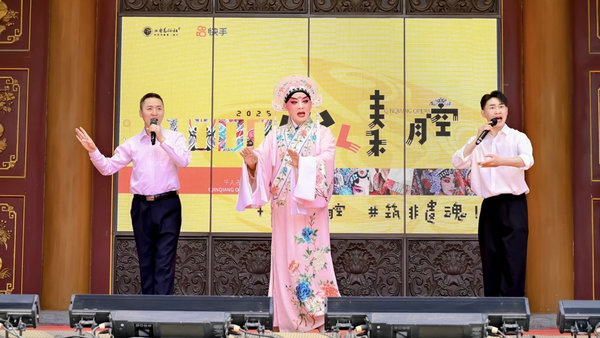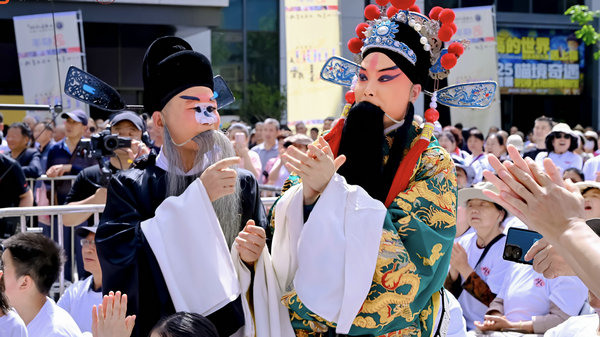

On the first day of the May Day holiday, more than 1,000 opera enthusiasts gathered in downtown Xi'an, Shaanxi province, to sing alongside 13 performers from the Yisu Society — China's first Qinqiang Opera performance and education organization, which was founded in 1912.
Hosted by the Xi'an Federation of Literary and Art Circles, the event was held to promote Qinqiang Opera, a 2,000-year-old art form that originated during the Qin Dynasty (221-206 BC), evolved through later dynasties, and gained widespread popularity during the last imperial era, the Qing Dynasty (1644-1911).
Originating in Shaanxi province, Qinqiang Opera is renowned for its sonorous vocals and varied repertoire that includes historical epics, mythological tales, and folk narratives.

During the event, a number of classic works were performed, among them San Di Xue (Three Drops of Blood), the story of a conflict between a merchant and his greedy younger brother, and Huo Yan Ju (Flame Steed), the story of a general fighting to rescue his younger brother after he is wrongly imprisoned.
To engage the audience — many of whom had little previous knowledge of the art — there was an interactive segment during which visitors could try on traditional costumes, apply stage makeup, and even learn to sing a few lines selected from famous operas.
The organizers expressed hope that such initiatives will spark interest in Qinqiang Opera among the younger generation, and breathe new life into this centuries-old tradition.
According to Kuaishou, a popular short-video platform and one of the event's organizers, Qinqiang Opera, which was added to China's list of intangible heritage items in 2006, has seen a resurgence in popularity thanks to innovative digital promotions. For instance, the number of Qinqiang-related short videos on the platform surged by 65 percent year-on-year in December alone.